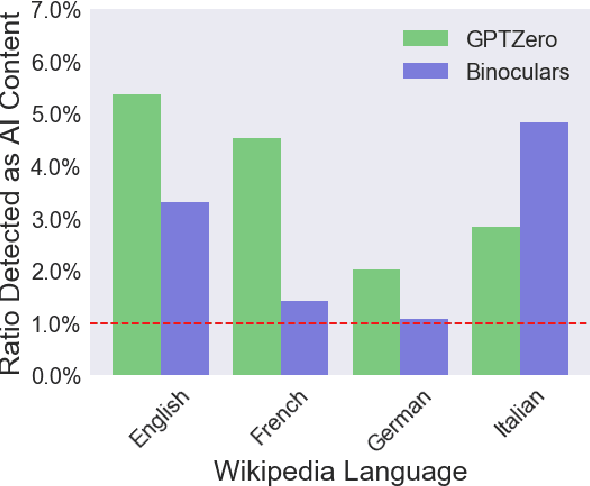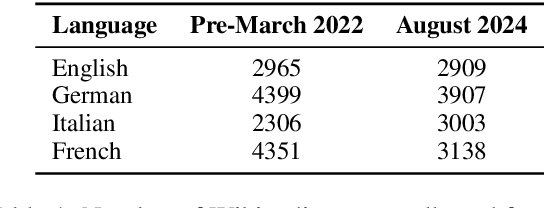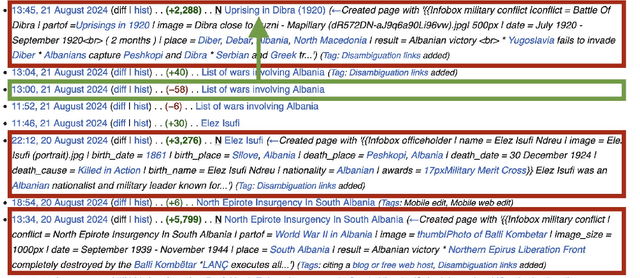The Rise of AI-Generated Content in Wikipedia
Paper and Code
Oct 10, 2024



The rise of AI-generated content in popular information sources raises significant concerns about accountability, accuracy, and bias amplification. Beyond directly impacting consumers, the widespread presence of this content poses questions for the long-term viability of training language models on vast internet sweeps. We use GPTZero, a proprietary AI detector, and Binoculars, an open-source alternative, to establish lower bounds on the presence of AI-generated content in recently created Wikipedia pages. Both detectors reveal a marked increase in AI-generated content in recent pages compared to those from before the release of GPT-3.5. With thresholds calibrated to achieve a 1% false positive rate on pre-GPT-3.5 articles, detectors flag over 5% of newly created English Wikipedia articles as AI-generated, with lower percentages for German, French, and Italian articles. Flagged Wikipedia articles are typically of lower quality and are often self-promotional or partial towards a specific viewpoint on controversial topics.
 Add to Chrome
Add to Chrome Add to Firefox
Add to Firefox Add to Edge
Add to Edge